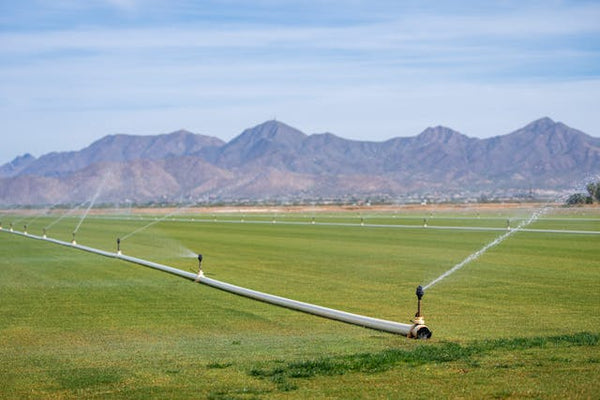
The Green Revolution: Water Irrigation's Dominance in the United States
Nestled within the heartland of America, amidst sprawling fields of grain, one agricultural marvel reigns supreme – water irrigation. More than a mere means of watering crops, it serves as the lifeblood of farming, driving economic prosperity and sustainability. This article delves into the reasons behind water irrigation's unrivaled status as the pinnacle of agricultural endeavors in the United States.
Optimizing Yield Potential:
Water irrigation transcends basic hydration; it's about maximizing crop growth. By precisely managing water distribution, farmers ensure each plant receives optimal moisture levels, leading to healthier crops and increased yields. This precision is crucial in a country where agricultural productivity is paramount.
Mitigating Drought & Building Climate Resilience:
Drought poses a significant threat to American agriculture, jeopardizing livelihoods and food security. However, water irrigation acts as a shield against climate change's unpredictability. Techniques like drip irrigation and precision watering systems help mitigate drought's impact, ensuring consistent crop production regardless of environmental challenges.
Resource Conservation:
Water, a finite resource, demands careful management. Water irrigation techniques prioritize efficiency, minimizing wastage through practices like soil moisture monitoring and scheduled irrigation. By conserving water, farmers contribute to sustainable resource management and environmental preservation.
Economic Empowerment:
Water irrigation drives economic prosperity in rural communities. By boosting crop yields and fostering agricultural diversity, it creates jobs, stimulates local economies, and strengthens supply chains. Additionally, higher productivity translates to increased incomes for farmers, bolstering overall economic growth and stability.
Environmental Responsibility:
Amid growing environmental concerns, water irrigation emerges as a sustainable solution. By optimizing water usage, reducing runoff, and limiting chemical inputs, it promotes eco-friendly farming practices. This commitment to environmental stewardship underscores farmers' dedication to preserving natural resources and ecosystems.

In the fabric of American agriculture, water irrigation is a vital thread weaving together productivity, resilience, and sustainability. Its impact resonates across the landscape, shaping the future of farming and ensuring food security for generations. As we navigate a changing world, one truth remains clear – water irrigation isn't just a farming method; it's a testament to human ingenuity and our harmonious relationship with the land.
